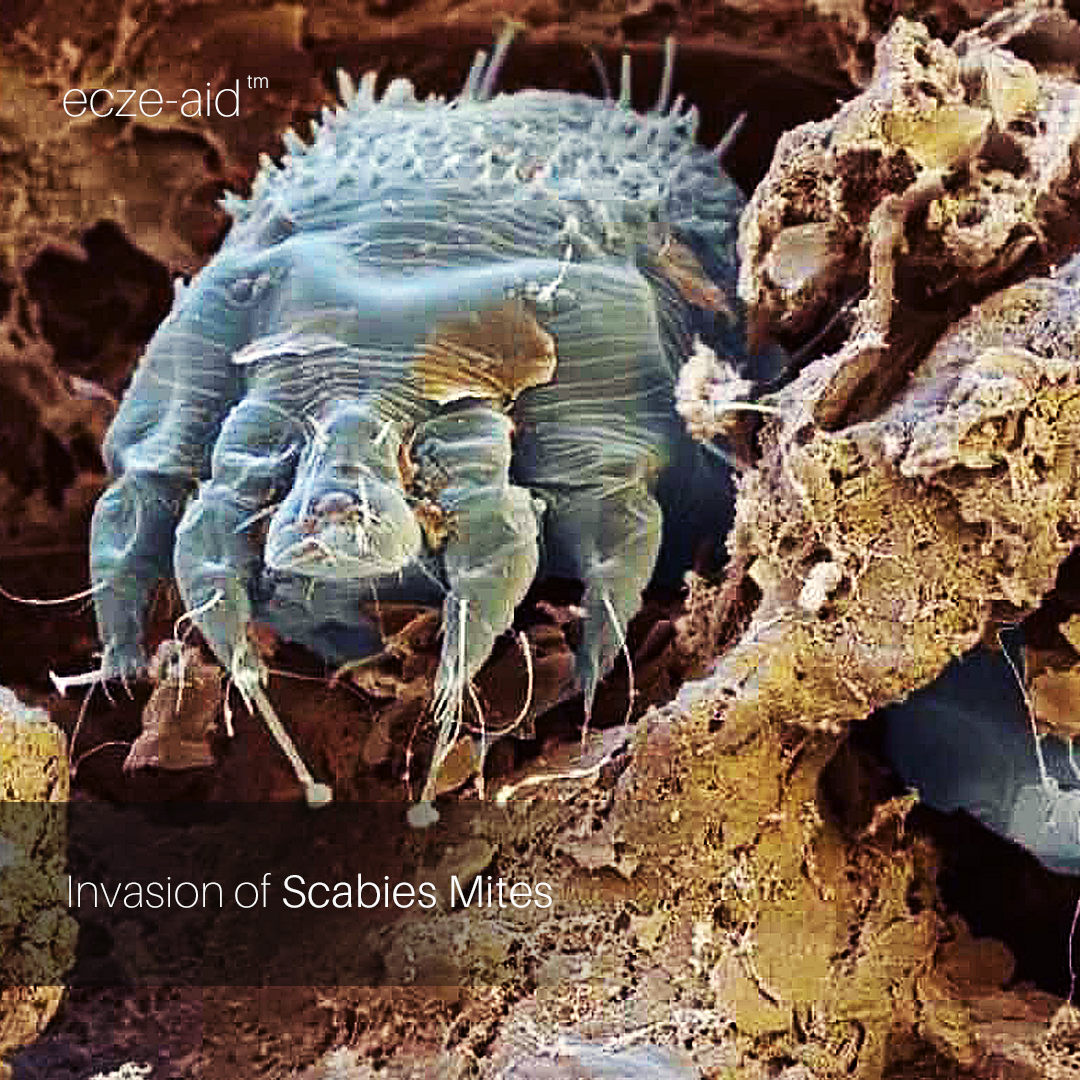As both scabies and eczema conditions can cause dark, itchy rashes to appear on the skin, it may be quite confusing between the two. Determining which condition that you are actually experiencing will let you choosing a better treatment option for greater effectiveness.
Here’s a quick guide to help you identify whether you are having eczema or scabies:
- Contagious vs. Non-Contagious
One significant difference between them is that scabies is a contagious skin condition, while eczema non-contagious. Scabies mites move easily from one person to another through long duration direct skin-to-skin contact, and they can also spread through fabrics [eg, towel or bedding] that come into contact with the skin. Mites that cause scabies [Sarcoptes scabiei var. hominis] only burrow in humans.
- Different Triggers
Scabies occurs when mites burrow into the skin causing itchy rashes which is treatable with medications that kill the mites that trigger it. Meanwhile, eczema is a life-long skin condition that flares up at different times [sometimes without warning] due to the dysfunctional skin’s protective barrier which result in easier invasion by pathogens, irritants, and allergens.
- Symptoms and Duration
Symptoms of scabies may take 4 to 6 weeks to present with constant itching with small acne-like rashes. If you have itchy rash between the fingers [finger webs], around your belly-button or on your genitals, you may be more likely to have scabies than eczema.
There will be about 15 to 20 mites living in the skin of a person who have scabies and in more severe cases there may be 100s or 1,000s of mites living in the skin.
Meanwhile, symptoms of eczema often present at different times [it can occur in babies, children and adults, and sometimes without warning] where the condition could last in a few weeks or months, or even continued for years [life-long chronic condition]. Rashes of eczema often present around the areas that flex [eg, wrists, neck, inner elbow, hands, and feet].
As they are many different types of eczema [e.g., Atopic Dermatitis, Contact Dermatitis, Dyshidrotic Eczema, Nummular Eczema, Seborrheic Dermatitis, Stasis Dermatitis, etc.], the accompanying symptoms are different depending on the type of eczema a person has.
Treatment for Scabies and Eczema
Generally, treatment for scabies may take up to 4 weeks to take effect through medication. During the first week of treatment, the patient may find the rashes and itching worsen, but such reaction is completely normal. The patient should avoid close contact until the infection has cleared [e.g., no sharing of towels, bedding, or anything that may come into contact with the skin].
As eczema is a life-long chronic condition where flare-ups may occur without warning, it requires ongoing treatment such topical steroid creams [but may pose various side effects with prolonged use] and other non-steroid base solutions, as well as avoiding the main triggers and allergens to prevent further flare-ups while maintaining good skincare regime and managing stress.

